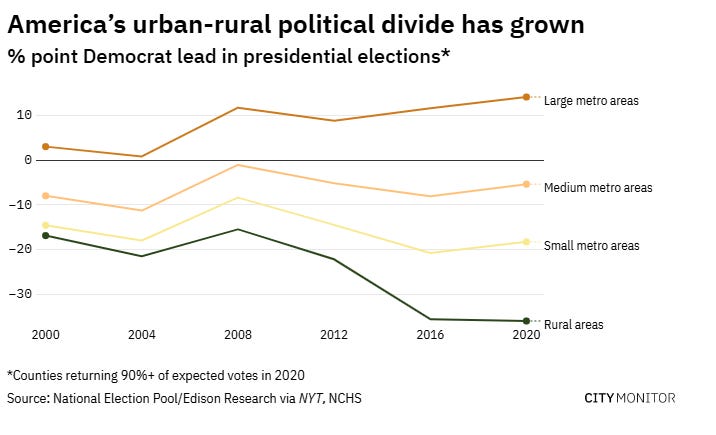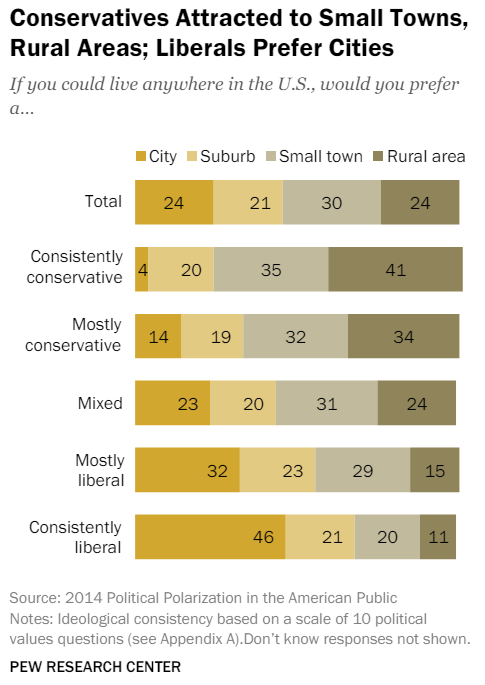*Build, Baby, Build*: Responses to the Best Objectio

As an author, I am deeply grateful for criticism. Your critics correct you. Your critics help you improve. And as Oscar Wilde taught us in The Picture of Dorian Gray, “There is only one thing in the world worse than being talked about, and that is not being talked about.” For the vast majority of writers, being widely denounced would be a big step up from being utterly ignored.
Relative to my earlier books, criticism of the new Build, Baby, Build: The Science and Ethics of Housing Regulation has so far been mild. I’m still waiting for the first 1-star Amazon review.
Granted, my thesis — property-owners, not government, should decide what to build on their own land — ultimately horrifies most people. But almost everyone who knows anything about housing knows that the case for determined deregulation is strong. Still, I plainly haven’t convinced all informed observers. What are their best objections, and how do I reply?
- “Exactly what regulations should be abolished? Are you opposed to building codes? Fire codes? Or what?” The book focuses on height restrictions, multifamily restrictions, minimum lot sizes, and minimum parking requirements. There is specific research on all four of these forms of regulation which confirms their high costs and low benefits, so we should definitely eviscerate them. But as my discussion of the slippery slope suggests, I am broadly opposed to even the most anodyne regulations. Reputation and private certification are the best ways to ensure occupants’ safety. HOAs and nuisance lawsuits are the best ways to handle neighbors’ complaints. I’m striving for a broad consensus, and celebrate any deregulation I can get. My aspirational agenda, however, is full laissez-faire.
- “You claim that deregulation will raise fertility by reducing housing prices. But don’t dense cities almost always lead to rock-bottom fertility?” Whenever you see birth dearths in cramped quarters, the fundamental question to ask is: “Why do these people consume such a small quantity of housing?” Our default answer should definitely be: “Because housing is expensive.”
If 4000 square foot apartments in Manhattan skyscrapers cost $1500 a month, would critics really still expect their occupants to have low fertility? While it is logically possible that density per se reduces fertility holding the price per square foot of housing constant, I have yet to see any credible evidence of this. This recently popular paper has no price data. Furthermore, it measures density at the national level, so whether your people live in closets or mansions doesn’t even register.
I’m also tempted to respond: If you fear density’s effect on fertility, you should oppose the deregulation of skyscrapers, but support the rest of my agenda. But the validity of this rebuttal hinges on the way you measure density. It’s not crazy, for example, to define density as “families per acre.” Given this definition, maybe natalists should embrace 1-acre zoning for single-family homes. In fact, if you really believe that sheer density is psychologically sterilizing, perhaps you should try to prevent anyone from even seeing a neighboring home.
Ridiculous? Yes, but why? To repeat repeat repeat, because of the effect on housing prices! Even if, holding price constant, 1-acre zoning raises fertility, such regulations drastically raise housing prices, which strongly encourages young adults to keep living with their parents. Which in turn delays marriage and child-bearing, often permanently.
- “Virtually all large U.S. cities are left-wing. Won’t housing deregulation push U.S. political opinion to the left?” A dear Austin friend once told me, “It’s great to live in a blue city in a red state.” My response: “We don’t really know what a red city would be like, because they basically don’t exist.” In the U.S., one-party democracy by Democrats is the urban norm. 18 out of the 20 most-populous U.S. cities have Democratic mayors. And in presidential elections, large metro areas lean strongly Democratic.

Suppose, then, that cities embraced housing deregulation. Construction booms, prices fall, and — since cities have the strictest regulation — the national population urbanizes. Won’t the new arrivals assimilate to their new Democratic political culture, moving the entire United States in a leftist direction?
My honest answer is: It’s complicated. I can’t find a single academic article that even tries to study this effect. (If you know of any, please share in the comments).
What’s clear is that a lot of the correlation between location and politics reflects reverse causation. To a large degree, leftists are more likely to live in cities because they like cities. Rightists do the opposite because they feel the opposite. Steve Landsburg won’t like the wording of the 2014 survey question below, but it captures a meaningful attitudinal difference.

- Despite these reservations, I suspect that the observed correlation between where you live and what you think about politics is partly causal. Even here, however, the mechanism matters. The default causal story is sheer conformism; or, in social science jargon, “peer effects.” Humans crave the approval of nearby humans; imitation is proverbially the sincerest form of flattery; and flattery causes approval. Ergo, being around leftists normally causes you to become more left-wing, and being around rightists normally causes you to become more right-wing.But if conformism is the mechanism of political conversion, mass migration of non-leftists into newly-affordable cities is a double-edged sword. The leftist natives make the migrants more leftist, but the non-leftist migrants simultaneously make the natives less leftist. Net effect on average political orientation: unclear.
By analogy, admitting non-Mormons to Brigham Young University probably causally makes them more likely to convert to Mormonism. But if BYU admitted a 50% non-Mormon student body, this would probably also causally turn many Mormons into ex-Mormons. Net effect of the non-Mormon migration on BYU’s average religious affiliation: unclear.
One last political point: Partisan Democrats in safely blue states and partisan Republicans in safely red states both have a strong reason to favor housing deregulation: the electoral college. Unless migration actually flips your state’s presidential vote, anyone who prioritizes national politics should hope to attract out-of-state migrants from the other party. This is clearest for California: Due to its famously wonderful weather, much cheaper housing would plausibly attract millions of Republicans, swelling California’s population and therefore its electoral vote count. If the migrants come from nearby swing states, even better.

The post *Build, Baby, Build*: Responses to the Best Objectio appeared first on Reason.com.
Source: https://reason.com/volokh/2024/05/16/build-baby-build-responses-to-the-best-objectio/
Anyone can join.
Anyone can contribute.
Anyone can become informed about their world.
"United We Stand" Click Here To Create Your Personal Citizen Journalist Account Today, Be Sure To Invite Your Friends.
Lion’s Mane Mushroom
Mushrooms are having a moment. One fabulous fungus in particular, lion’s mane, may help improve memory, depression and anxiety symptoms. They are also an excellent source of nutrients that show promise as a therapy for dementia, and other neurodegenerative diseases. If you’re living with anxiety or depression, you may be curious about all the therapy options out there — including the natural ones.Our Lion’s Mane WHOLE MIND Nootropic Blend has been formulated to utilize the potency of Lion’s mane but also include the benefits of four other Highly Beneficial Mushrooms. Synergistically, they work together to Build your health through improving cognitive function and immunity regardless of your age. Our Nootropic not only improves your Cognitive Function and Activates your Immune System, But it benefits growth of Essential Gut Flora, further enhancing your Vitality.
Our Formula includes:
Lion’s Mane Mushrooms which Increase Brain Power through nerve growth, lessen anxiety, reduce depression, and improve concentration. Its an excellent adaptogen, promotes sleep and improves immunity.
Shiitake Mushrooms which Fight cancer cells and infectious disease, boost the immune system, promotes brain function, and serves as a source of B vitamins.
Maitake Mushrooms which regulate blood sugar levels of diabetics, reduce hypertension and boosts the immune system.
Reishi Mushrooms which Fight inflammation, liver disease, fatigue, tumor growth and cancer. They Improve skin disorders and soothes digestive problems, stomach ulcers and leaky gut syndrome.
Chaga Mushrooms which have anti-aging effects, boost immune function, improve stamina and athletic performance, even act as a natural aphrodisiac, fighting diabetes and improving liver function.
Try Our Lion’s Mane WHOLE MIND Nootropic Blend 60 Capsules. Today Be 100% Satisfied Or Receive A Full Money Back Guarantee Order Yours Today By Following This Link.






